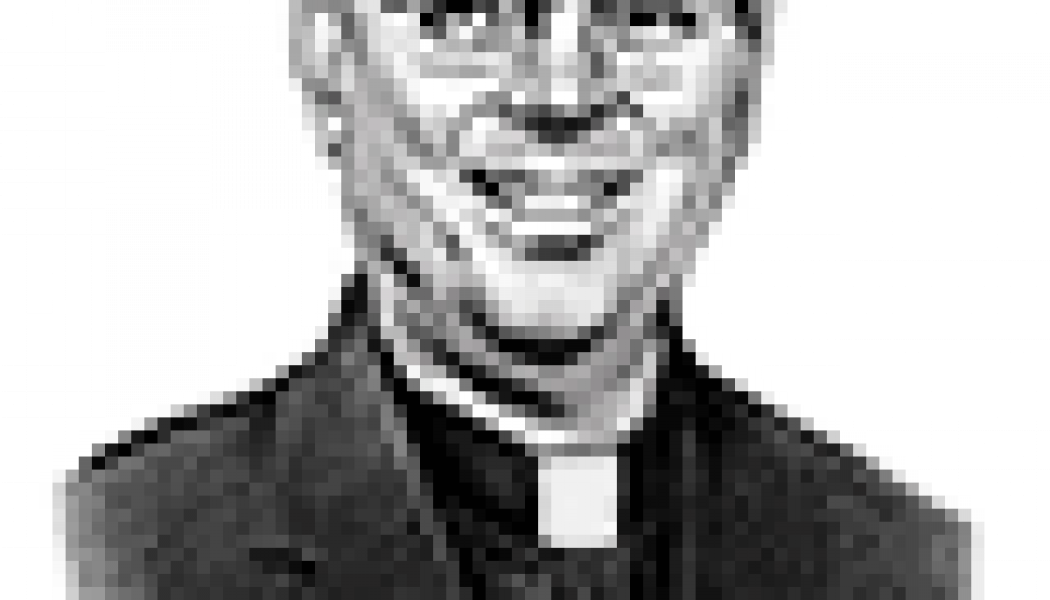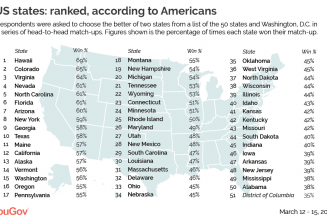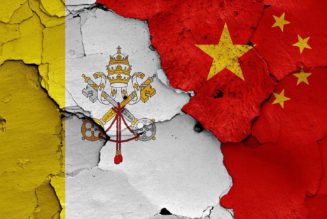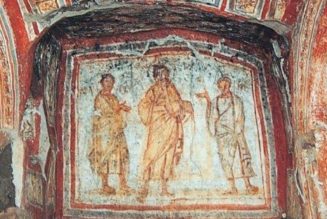By Fr. Jerry Pokorsky ( bio – articles – email ) | Jan 23, 2020
Catholic parishes, dioceses, and the entire Church are pro-life. We love life, or so we say. Yet it is common for some (priests and laity) to warn priests to avoid preaching about abortion because “the people already know what the Church teaches” and “you’re preaching to the choir.”
So in evading this hot-button issue, what should priests emphasize? “The love of God” is the most common reply. But don’t Catholics also know that God loves them?
Others argue that abortion is a political issue and priests have no business dabbling in politics. Of course, wise churchmen respect the rights of the laity to make their own prudential judgments in the political arena. After all, beyond their citizen status, the clergy usually does not have special expertise in running municipalities, states, or nations. “Render to Caesar the things that are Caesar’s….”
But when God’s law is clearly violated, we expect priests to stand up in opposition to evil and, as necessary, suffer the consequences. The largest number of imprisoned priests in history—over 2,000—was in the Dachau concentration camp during World War II, because these priests had opposed the Nazis. On the other hand, we are disappointed to learn that Nazis and Communists successfully bullied many priests and bishops into silence.
Some argue that religion is a “very private matter.” But religion isn’t private, as the Scriptures demonstrate. The Mosaic Law, for example, required a variety of ablution rituals. Cleansing with water for physical as well as spiritual purity was commanded in the Old Testament. Ritual bathing preceded the ordination of priests (cf. Leviticus 8:6). Contaminated clothing had to be washed. (cf. Leviticus 13:58) The religious practices of the Jews contributed to a physically clean and healthy society.
At times, religion even gets a jump on science. Since antiquity the Church has celebrated the Feast of the Annunciation on March 25. Mary replied to the Angel Gabriel, “Behold the handmaid of the Lord, be it done unto me according to thy word.” Exactly nine months before Christmas, the Feast of the Annunciation is the feast of the Incarnation, when Mary conceived Jesus by the power of the Holy Spirit. In witness, we ritually genuflect or bow during the Creed when we recite: “And the Word was made flesh and dwelt among us.” Indeed, the faith of the Catholic Church anticipated the results of modern medical research. A new human life begins at conception. Today, only the ignorant or superstitious (and those opposed to the medical science on ideological grounds) question this fundamental medical fact.
Yet since 1973 in the US, a staggering 61 million babies have been intentionally killed in the womb. We’ve allowed the culture to bully us—and our children—into silence, often embarrassed by Catholic moral teaching. So today—especially in public schools and many private schools—the most unnerving and subversive word a student can say is “chastity.”
Chastity has become a virtue that dares not speak its name. It is too quaint and old-fashioned for the 21st century. But mostly it is “judgmental” because it suggests that some sexual behavior is not chaste. It has become easier to treat our children as unthinking animals in need of the latest in contraceptive technology. But when birth control chemicals and devices fail, the unintended baby suffers the cruel fate of a dangerous intruder.
The result is predictable. A scared young lady without the support of her boyfriend, parents, politicians—and sometimes even her church or synagogue—enters the meat grinder of the abortion mill. She thinks the elimination of the child will set her free. But she emerges wounded, body and soul, and the bloody experience, without Christ, will haunt her for the rest of her life.
The political consequences of the breathtaking rate of abortion are enormous. Abortion has become the defining political issue of our day, a litmus test for every politician, dividing the nation and families. Like slavery, there will be no resolution until we recognize the inestimable dignity of every human being from the moment of conception. But faith and reason are on the side of life.
Consider these sound bites from the lips of so-called “pro-choice” politicians and activists:
- “Abortion is just one issue.” Compare: “Hitler’s hatred of the Jews is just one issue.”
- “We’re not pro-abortion, we are pro-choice.” Is it acceptable to be “pro-choice” concerning slavery or, say, pedophilia?
- “Reproductive health includes the right to abortion.” If an unborn baby is a disease because it is unwanted, so are other so-called unwanted people. No wonder our children so often feel undesired and fall into despair.
- “A woman must have control of her body.” Here we might find some common ground, after a fashion. Sexual self-control is precisely what the virtue of chastity is all about.
A recent news article reported that 260 million Christians are facing persecution worldwide. The North Korean government deports Christians to labor camps as political criminals or kills them with a bullet to the back of the head. Also on the Christian persecution watch list are Afghanistan, Somalia, Libya, Pakistan, Eritrea, Sudan, Yemen, Iran, and India. In the US, Christians do not face this kind of persecution. Not yet. So we don’t have an excuse for our silence in defending the rights of the unborn. At a minimum, can we at least be vocal in our opposition to abortion? Doesn’t the love of Christ require the clergy to speak out?
Make no mistake: Pro-choice/abortion advocates are unforgiving. Their obscene slogans reveal a burning hatred for their opponents, for unborn life and, one suspects, even for themselves. But God does not forget or detest his children: “Can a woman forget her sucking child, that she should have no compassion on the son of her womb? Even these may forget, yet I will not forget you.” (Isaiah 49:15)
There may come a day, in the decades and centuries ahead when historians examine our record, and ask, “Where were you in defending the rights of the most innocent in our midst, unborn babies?” But even if historians forget, without question, the Divine Judge will not.
Sound Off! CatholicCulture.org supporters weigh in.
All comments are moderated. To lighten our editing burden, only current donors are allowed to Sound Off. If you are a donor, log in to see the comment form; otherwise please support our work, and Sound Off!


 Fr. Jerry Pokorsky is a priest of the Diocese of Arlington who has also served as a financial administrator in the Diocese of Lincoln. Trained in business and accounting,
Fr. Jerry Pokorsky is a priest of the Diocese of Arlington who has also served as a financial administrator in the Diocese of Lincoln. Trained in business and accounting, 






